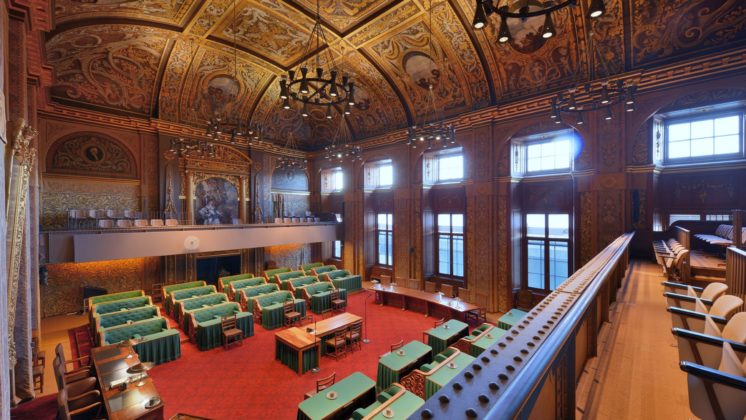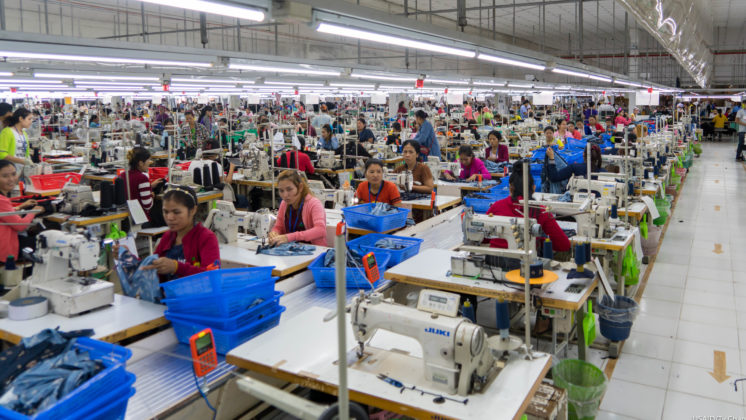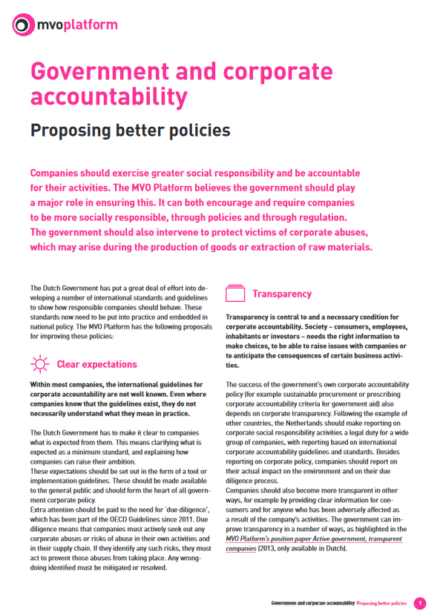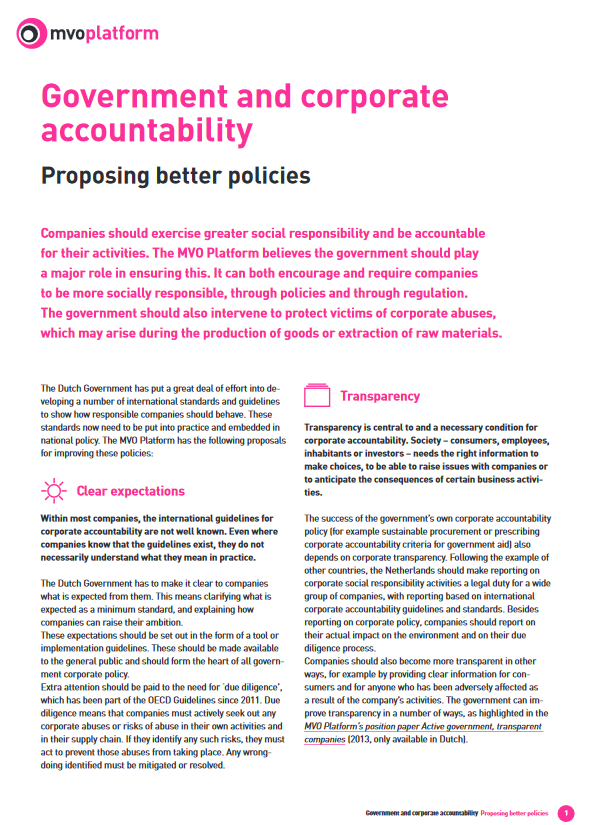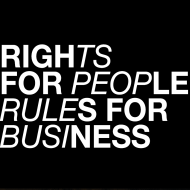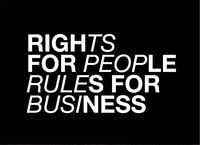In recent years, the concept of human rights due diligence (HRDD) has risen to prominence in the field of Business and Human Rights and is now embedded in several international agreements including the UN Guiding Principles on Business and Human Rights (UNGP), and the OECD Guidelines for Multinational enterprises. HRDD is a process companies must undertake to assess properly the risks and impacts of their operations with regard to human rights, and to design and implement a plan to prevent and mitigate these risks and impacts.
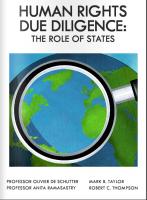
As part of the EU’s CSR strategy, Member States are requested to develop national action plans for the implementation of the UNGPs, in which HRDD should ideally be incorporated. As a result, States are increasingly looking to this standard when implementing the corporate responsibility to respect human rights, and yet uncertainty remains as to what this should mean in practice.
For this reason, ECCJ together with the International Corporate Accountability Roundtable (ICAR) and the Canadian Network on Corporate Accountability (CNCA) commissioned an expert team, including Professor Olivier De Schutter, Professor Anita Ramasastry, Mark B. Taylor and Robert C. Thompson, to clarify and build consensus around the concept of HRDD and to develop legal and policy recommendations to governments on ways to translate it in national legislations.
As a result the report “Human Rights Due Diligence : the Role of States”, was launched in Geneva in conjunction with the first UN Annual Forum on Business and Human Rights, held on 4 and 5 December 2012.
The report seeks to establish the extent to which the legal systems of States already make use of due diligence in other areas in order to link it to business behaviour with regard to human rights. MEP Richard Howitt underlined at the launch of the report that “due diligence isn’t simply the mechanism for corporations to assess whether they are fully respecting human rights [but] it is also the mechanism through which governments can assess whether corporations have effectively done so”.
